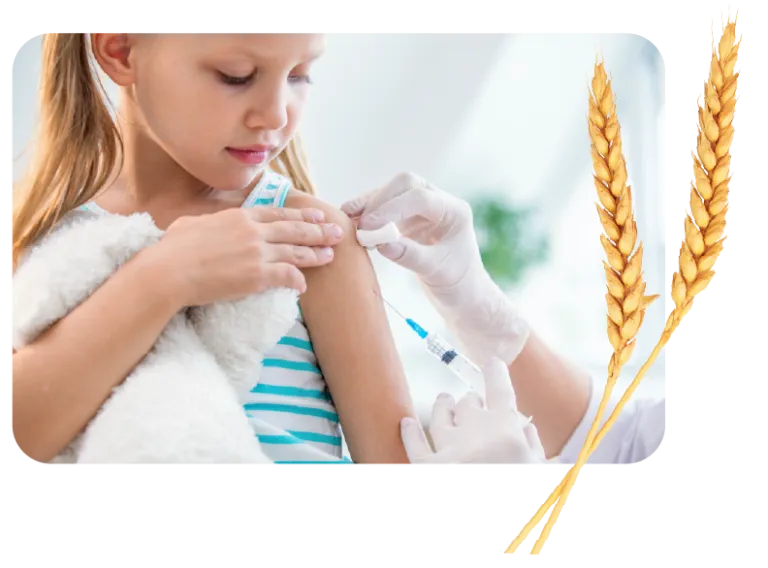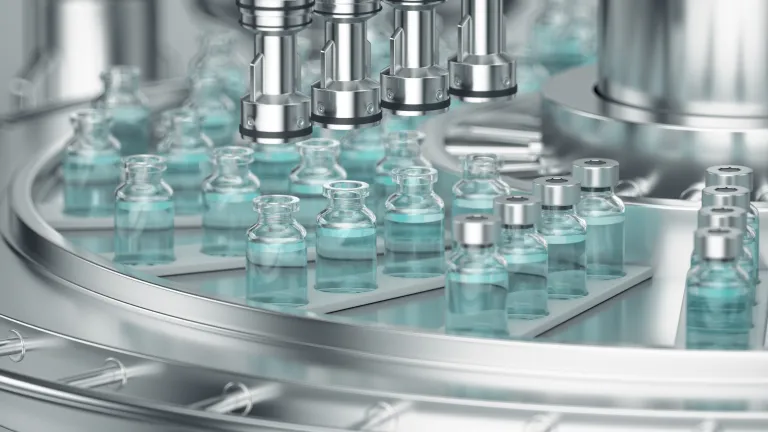Our Solution: Molecular Immunotherapy
Innovation in Allergy Treatment
DIATER is at the forefront of allergy innovation, pioneering molecular immunotherapy, with a more precise and effective approach. Molecular immunotherapy is an advanced allergy treatment that targets the root cause of allergic symptoms, helping the immune system build long-term tolerance to allergens (Calderón et al., 2021; Bousquet et al., 2020). By using highly, this therapy ensures greater precision, safety, and personalization, enabling tailored treatments that address each patient’s specific needs.
Allergy Vaccines: The treatment that changes the course of your allergies
The Immunotherapy, also known as allergy vaccines, consists of administering larger and larger doses of the allergen to which the patient is sensitised in an attempt to stimulate immunity and get the patient to tolerate natural exposure. It is performed with a so-called allergen extract obtained from the natural allergen source: Pollen, mites, etc. It has been confirmed to have a preventive effect on the onset of new sensitisations to allergens, and on the potential for the disease to progress from rhinitis alone to the added complication of asthma.
It is indicated for rhinitis and asthma as well as allergies to bee and wasp stings. It may be used to treat allergies to pollen, mites, animal dander and fungi.
Normally it is not indicated for food allergies. In this case, avoidance remains the best therapeutic option. However, in some causes a treatment regimen of inducing oral tolerance to certain foods such as milk or eggs may be established.

Immunotherapy consists of two phases:
-
Initiation phase
In the initiation phase, larger and larger doses of the allergen extract are given on a weekly basis until an effective dose is reached that stimulates the immune system without causing allergy symptoms.
-
Maintenance phase
This point marks entry into the maintenance phase, where this dose is administered every 4 weeks for a period of 3-5 years.
This next-generation treatment builds on traditional immunotherapy, offering:

- High efficacy through targeted allergen formulations, while maintaining treatment safety (DIATER Internal Research and Development Data).
- High precision in treatment, ensuring personalized therapeutic approach for each patient, based on molecular diagnosis as per allergen immunotherapy guidelines recommendation.
At DIATER, we uphold the highest standards of quality and safety across all our treatments. From controlling the production of raw materials to the final product development, we oversee every stage of the process to guarantee effective and reliable solutions.
Through ongoing research and innovation, DIATER remains dedicated to delivering advanced solutions for personalized allergy diagnosis and treatment, thereby enhancing patient outcomes and quality of life.
References
1 Pawankar, R., Canonica, G. W., Holgate, S. T., Lockey, R. F., & Blaiss, M. S. (Eds.). (2013). Update 2013." World Allergy Organization. Disponible en: https:/ /www.worldallergy.org "W
2 Global Initiative for Asthma (GINA). (2023). "Global Strategy for Asthma Management and Prevention". Disponible en: https://ginasthma.org/
3 Bousquet, J., Anto, J. M., Bachert, C., et al. (2020)."Allergic Rhinitis." Nature Reviews Disease Primers, 6(1), 95.
4Cox, L., Nelson, H., Lockey, R., et al. (2011). "Allergen immunotherapy: A practice parameter third update." Journal of Allergy and Clinical Immunology, 127(1), S1–S55.
5 Calderón, M. A., Vidal, C., Rodríguez del Río, P., et al. (2021). "Allergen Immunotherapy: Therapeutic Vaccines for Allergic Diseases. A WAO Position Paper." World Allergy Organization Journal, 14(2), 100510.
6 European Academy of Allergy and Clinical Immunology (EAACI). (2022). "Molecular Allergy Diagnosis: The Future of Personalized Allergy Treatment." Disponible en: https://www.eaaci.org
7 DIATER Internal Research and Development Data.